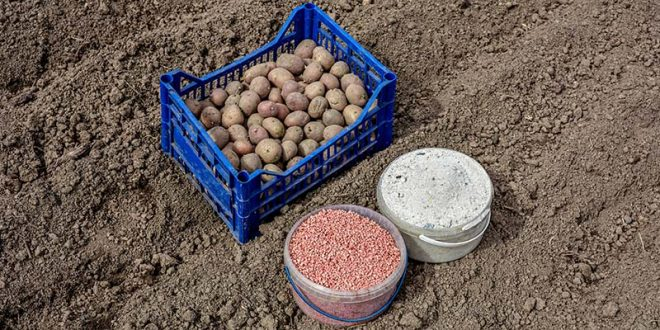Due to the present fertilizer shortage and rising production costs, efficient nitrogen fertilization is becoming more and more important.
Years of research on the Royal Avebe’s trial and demo fields show that the company was able to achieve significantly higher starch yields with their fertilizer recommendation of 120 kg of nitrogen per hectare, as opposed to the generally maintained 160 to 180 kg.
“This can be explained as follows based on plant physiology: a high N (nitrogen) dose at the beginning of the growing season ensures that the potato plant’s foliage mass grows better. The additional advantage of a larger foliage mass falls sharply above a certain foliage mass due to self-shading and the greater need for maintenance. Therefore, fertilizers that only stimulate foliage growth, but do not lead to higher yields, can be saved,” Patrick Riek, Account Manager at Royal Avebe declared.
To maximize yields, the timing of fertilizer application is crucial in reducing the amount of nitrogen.
“The plants must have sufficient nutrients and energy to achieve the desired yield around the time between crop conclusion and flowering,” he mentioned, adding that plant needs the most nitrogen in this transition period.
By reducing the number of nitrogen fertilizers, the nitrogen efficiency (i.e. the proportion of the total N-intake that the plant uses) can be significantly increased.
“Based on our fertilizer advice, growers can save up to EUR100 per hectare with current fertilizer prices. Together with the resulting higher starch yield, which at one ton per hectare means about 350 to 400 euros more yield for the grower, that means considerable added value for the grower,” Patrick explains. He said also that Avebe has developed a future-proof fertilization strategy that could be the solution to today’s nitrogen problems.
The increase in benefit for the grower results from years of research conducted by Avebe on its numerous trial and demo fields. The result is a sound fertilization recommendation with a lower N-intake. The company’s expert is confident about the future and has particularly high expectations of developing sustainable and efficient cultivation methods and breeding both disease-tolerant and virus- and pest-resistant varieties.







